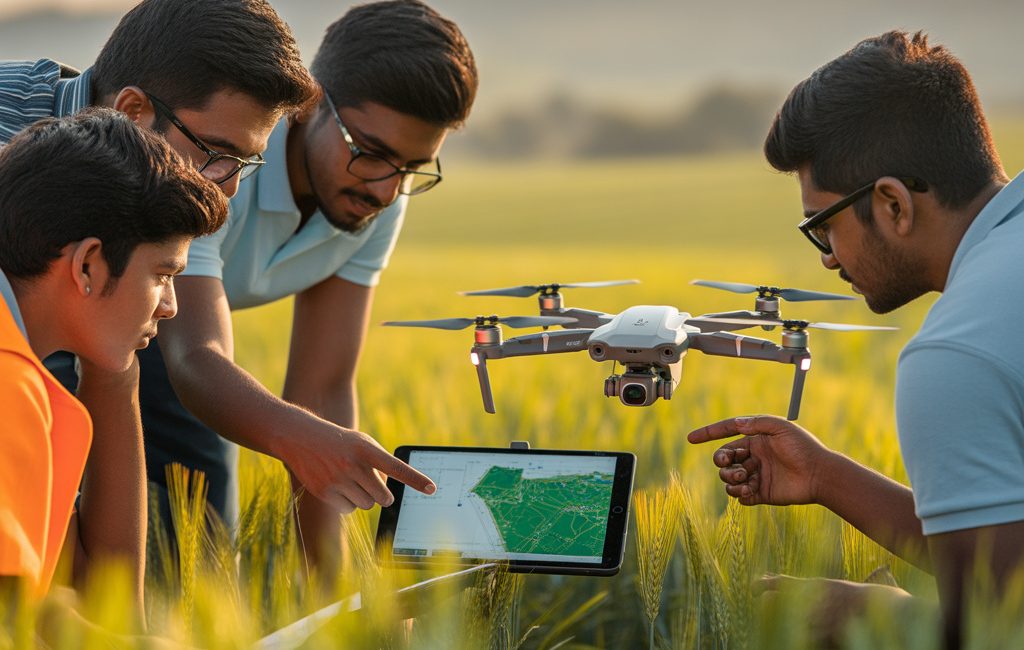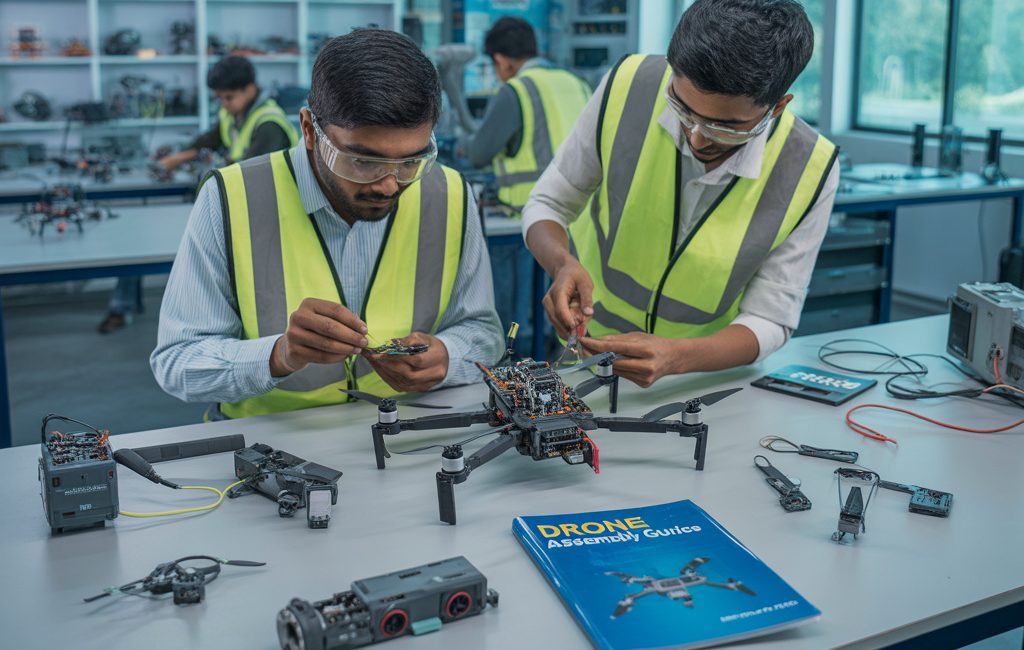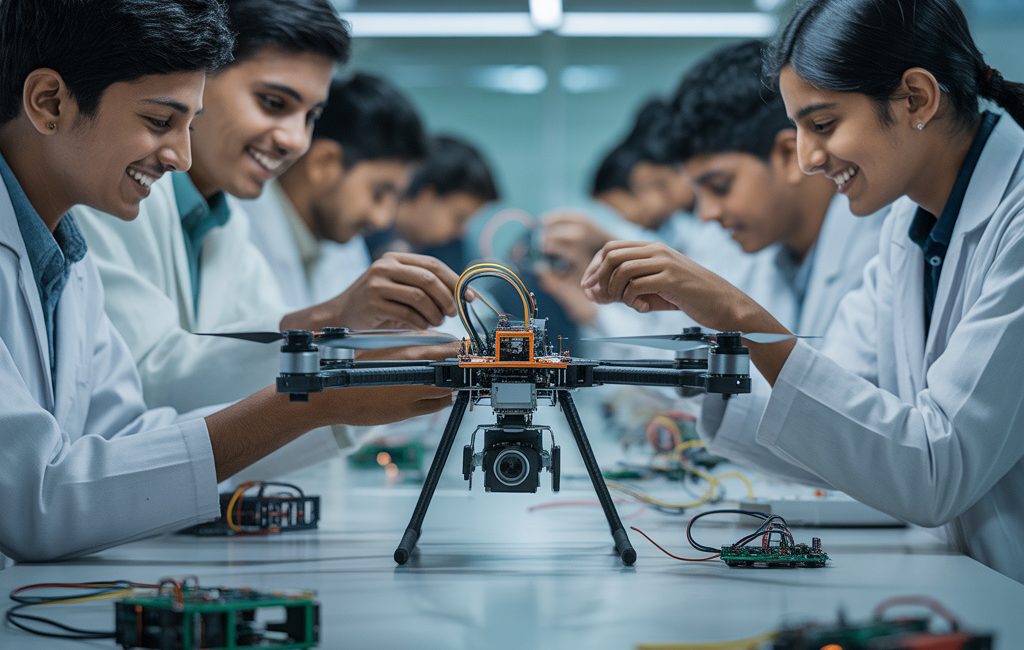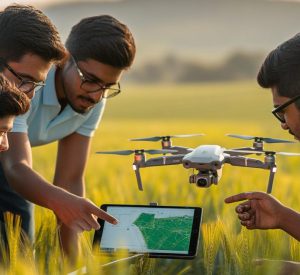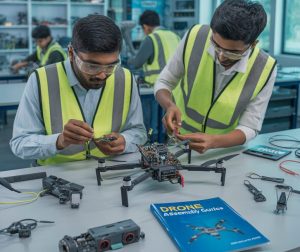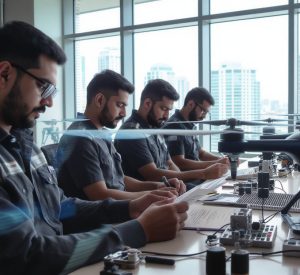The world of agriculture is rapidly changing. More so is India, the 2nd largest agricultural production country in the world. Learn to use modern technology, like Drones, to build your career as an Agricultural Drone Operator and Maintenance Technician
- 72 Hours (2 Weeks Full-Time)
- Hindi, English
- Learn & Get Certified
- Basic & Intermediate
- Hands-On Training
About this course
Drone Basics – Assembly and Repair Course introduces the fundamental skills needed to build, troubleshoot, and maintain drones. The course covers drone components, wiring, calibration, safety practices, and common repair techniques. Students will gain hands-on experience in assembling drones, diagnosing issues, and performing repairs to ensure reliable performance and safe operation.
This course provides essential knowledge and practical training to build industry-relevant skills.
Fees: ₹3500, ₹2000 (incl. GST)
Certification: TCoE
Duration: 72 hours (2 hours/day x 6 days/week x 6 weeks) OR at your own pace
What you'll learn
After this course you will be able to:
- Master UAV Loading and Performance. Understand the principles of loading and performance to ensure safe and efficient drone operations.
- Navigate Airport Operations. Learn the procedures and best practices for operating drones in and around airport environments.
- Understand Airspace Classifications. Learn how to identify and navigate different airspace classifications to fly safely and legally.
- Grasp Weather Principles. Understand the fundamental weather principles affecting aviation and how they impact drone flights.
- Master UAV Loading and Performance. Understand the principles of loading and performance to ensure safe and efficient drone operations.
- Navigate Airport Operations. Learn the procedures and best practices for operating drones in and around airport environments.
- Understand Airspace Classifications. Learn how to identify and navigate different airspace classifications to fly safely and legally.
- Grasp Weather Principles. Understand the fundamental weather principles affecting aviation and how they impact drone flights.
Course Content
How to use online TCoE platform?
Advantages of this course
Tools and Equipment required
National Skill Development Mission
Module-1: Introduction to Drones
This module introduces learners to the world of drones, covering the basics of unmanned aerial vehicles (UAVs). Students will explore drone types, components, and applications across industries such as agriculture, logistics, surveillance, and recreation. The module also highlights essential terminology, safety guidelines, and regulations. By the end of this module, learners will have a foundational understanding of drones, preparing them for assembly, operation, and maintenance in subsequent modules.
Module-2: Regulatory Framework
This module introduces learners to the legal and regulatory requirements for operating drones safely and responsibly. It covers national and international drone laws, licensing requirements, airspace restrictions, privacy considerations, and safety standards. Students will also learn about compliance procedures and documentation necessary for lawful drone operations. By the end of this module, learners will understand the regulatory framework governing drones, ensuring safe, legal, and responsible flying practices.
Module-3: Components
This module familiarizes learners with the essential components of a drone and their functions. It covers the frame, motors, propellers, flight controllers, batteries, sensors, and communication systems. Students will also learn how each component contributes to flight, stability, and control. By the end of this module, learners will have a clear understanding of drone hardware, preparing them for assembly, calibration, and maintenance tasks in later modules.
Module-4: Flight Dynamics
This module introduces the principles of drone flight and the forces that govern it. Learners will explore key concepts such as lift, thrust, drag, and weight, as well as stability, control, and maneuvering. The module also covers flight modes, navigation basics, and how sensors like gyroscopes and accelerometers help maintain balance and orientation. By the end of this module, students will understand how drones fly and respond to controls, laying the foundation for practical flying and troubleshooting.
Module-5: Operating a drone using a simulator
This module teaches learners how to operate drones safely using simulation software. Students will practice take-off, landing, hovering, and basic maneuvers in a virtual environment, reducing risks associated with real-world flights. The module also introduces different flight modes, mission planning, and emergency handling. By the end of this module, learners will gain confidence and essential piloting skills, preparing them for actual drone operation.
How to use online TCoE platform?
Advantages of this course
Tools and Equipment required
National Skill Development Mission
Browse Online Drones Certificates
Find new interests and advance your career opportunities!
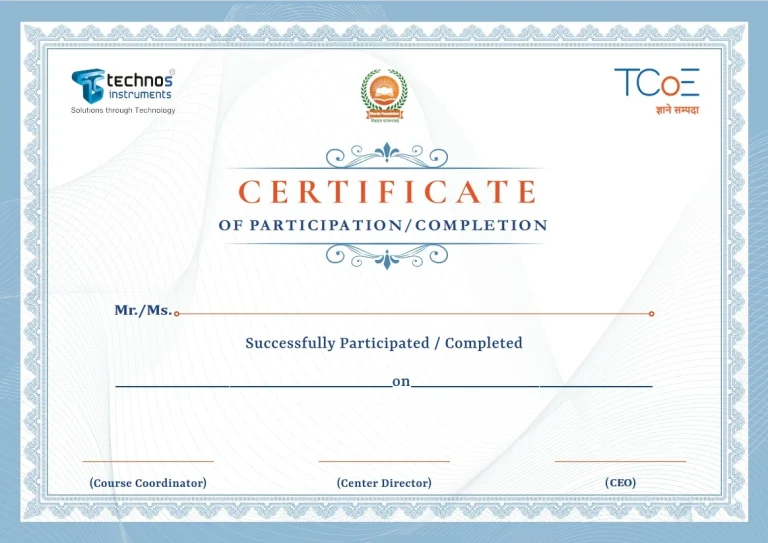
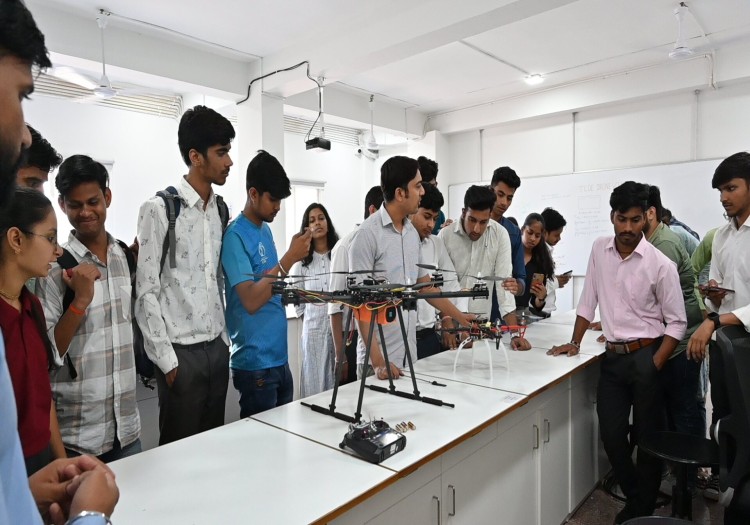
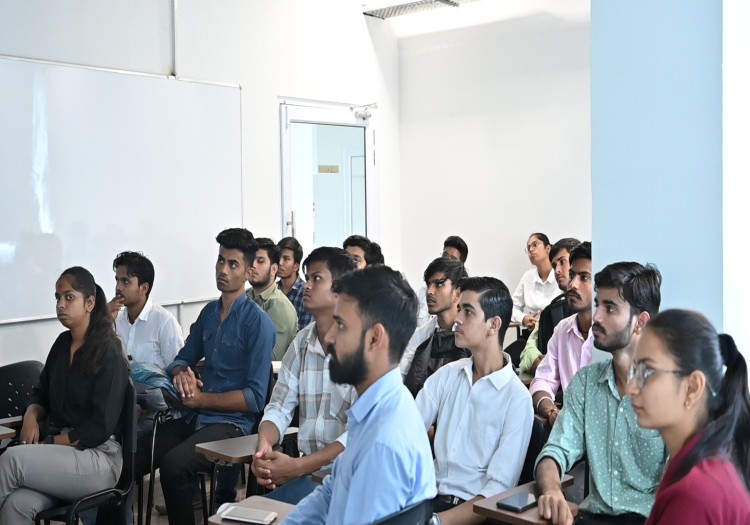
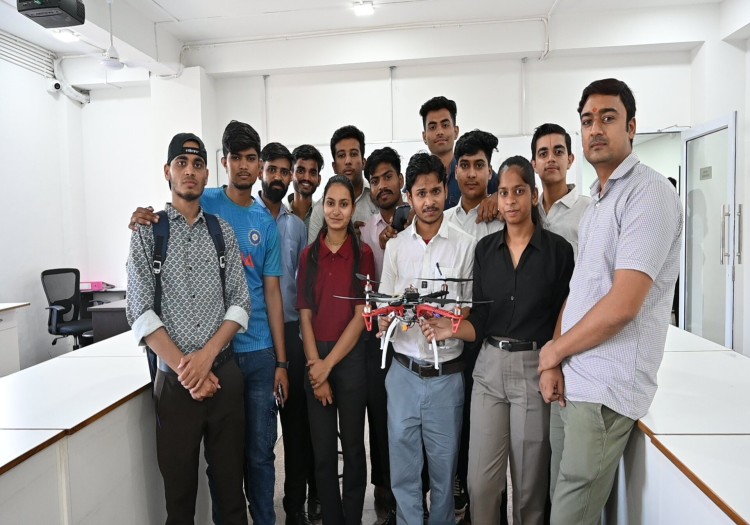
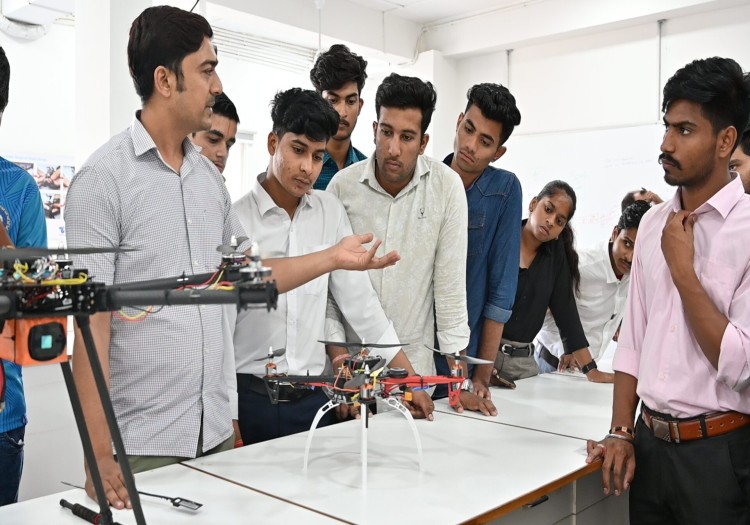
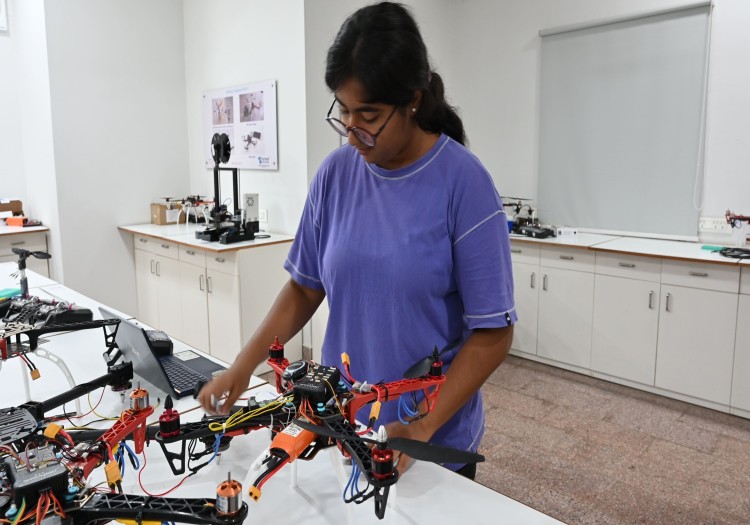
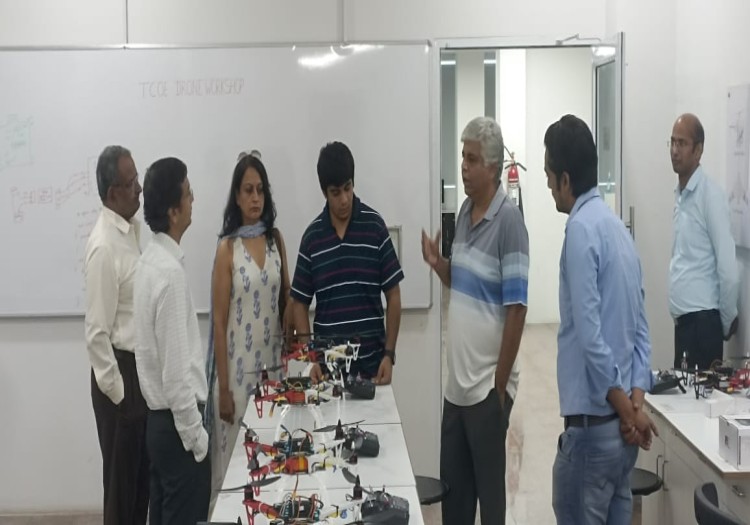
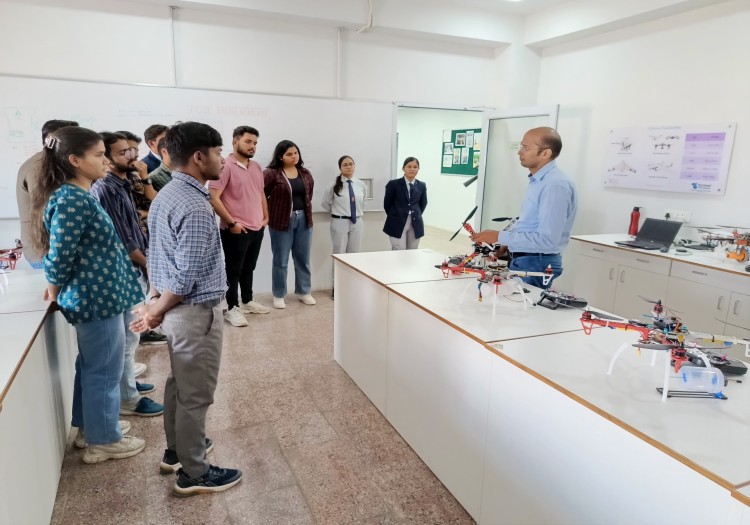
Browse Online Drones Certificates
Find new interests and advance your career opportunities!








ENROLL TODAY & GET 30% OFF ON ALL COURSES
Your Future Can’t Wait, Enroll Now and Save 30% On All Courses. Hurry Up Offer valid Till Diwali
Our Related Courses
See what our students have to say
With over a decade of experience, our mission is to produce future-ready skilled resources.

Precision Agriculture with Drones
This module focuses on using drones to enhance farming efficiency and crop management. Learners explore techniques such as aerial imaging, crop health monitoring, soil analysis, and automated spraying. By analyzing real-time data collected by drones, students can make informed decisions to optimize irrigation, fertilization, and pest control. Mastery of this topic equips learners to apply drone technology to increase agricultural productivity, reduce resource wastage, and support sustainable farming practices.
Job Opportunities
Here are some interesting job opportunities after completing the Agricultural Drone course:
Precision Agriculture Specialist – Use drones to monitor crop health, optimize irrigation, and improve yields.
Agricultural Drone Operator – Conduct aerial surveys, map fields, and collect data for farms and agribusinesses.
Drone Data Analyst (Agriculture) – Analyze drone-collected data for soil health, crop stress, and pest management.
Agri-Tech Drone Consultant – Advise farmers and companies on implementing drone technology for efficient farming.
Drone Maintenance & Service Technician – Maintain and repair agricultural drones to ensure smooth operation.
Crop Monitoring & Research Assistant – Support agricultural research projects using drone-based monitoring tools.
Frequently asked questions
Do I need prior experience with drones or farming?
No prior experience is required. The course covers both drone basics and agricultural applications, making it suitable for beginners and professionals alike.
Will there be hands-on training?
Yes! You’ll get practical experience flying agricultural drones, collecting data, and analyzing crop health to make actionable decisions.
What industries can I work in after completing this course?
Graduates can work in agriculture, agritech companies, farm management, research organizations, and drone service providers.
What makes this course different from general drone courses?
Unlike general drone courses, this program focuses specifically on agriculture applications, teaching you how to leverage drones to increase efficiency, reduce costs, and boost crop yields.

